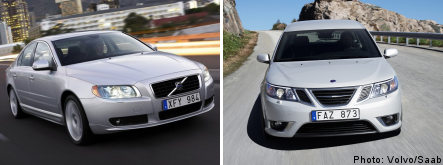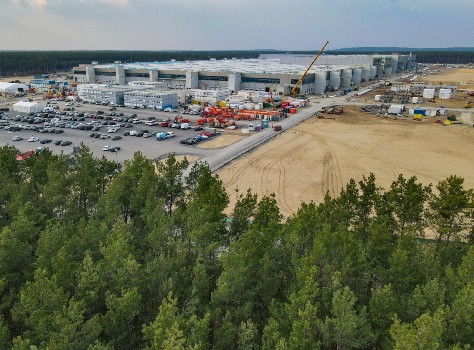“We all ought to take a moment to think about what would happen in Sweden if both Volvo Cars and Saab Automobile ceased to exist,” writes Wolff in Monday’s issue of business daily Dagens Industri.
“If Volvo Cars disappears as a base for industrial knowledge and skills, then Sweden will never again be a part of the auto industry. All the knowledge and skills would be lost, and with it all future associated development potential would be gone. Forever.”
The Swedish government on Monday ruled out any financial support for the country’s crisis-hit automakers Volvo Cars and Saab Automobiles until the intentions of their US parent companies became clear.
Ford-owned Volvo Cars and Saab, owned by General Motors, have seen sales plummet in recent months while their struggling parent companies have sought a bailout from the US government to stave off bankruptcy.
Enterprise Minister Maud Olofsson said the government sought to gain a clearer picture of the situation facing the two carmakers before any economic assistance was considered.
“What will Ford and GM do? Will Ford and GM move forward with Saab and Volvo? Will they develop new car models?” Olofsson told journalists.
“We could be a party to research and development. That is what several other governments are discussing,” she said, adding that other forms of direct aid were likely to run counter to EU competition legislation.
The comments came amid growing calls for the government to take action in support of the carmakers, seen as pillars of the country’s engineering industry and vital for the survival of a broad swath of suppliers.
The plight of the US “Big Three” automakers — Ford, General Motors and Chrysler — has led to scattered calls in Sweden for the government to consider taking over the carmakers that for decades have been standard-bearers of the country’s export-oriented industrial sector.
Volvo Cars is headquartered in Gothenburg, an important hub for the country’s industry on Sweden’s west coast.



 Please whitelist us to continue reading.
Please whitelist us to continue reading.